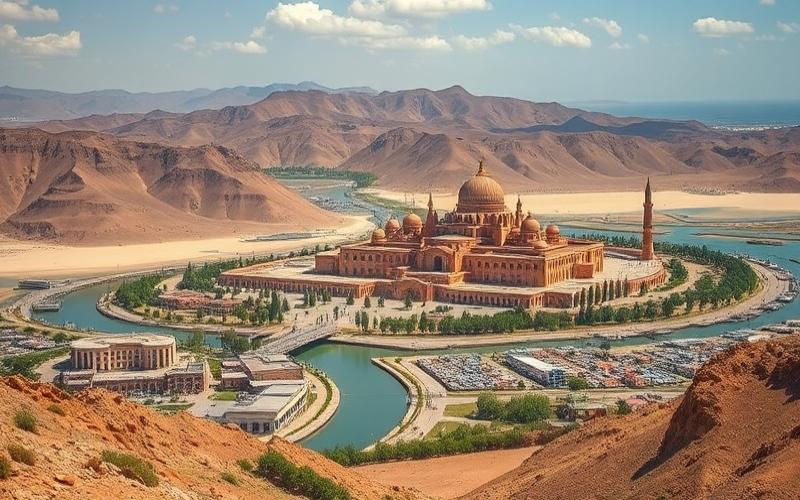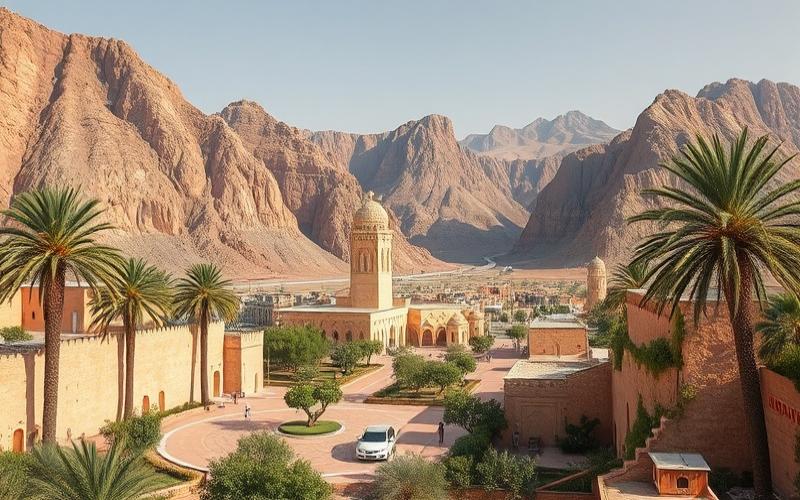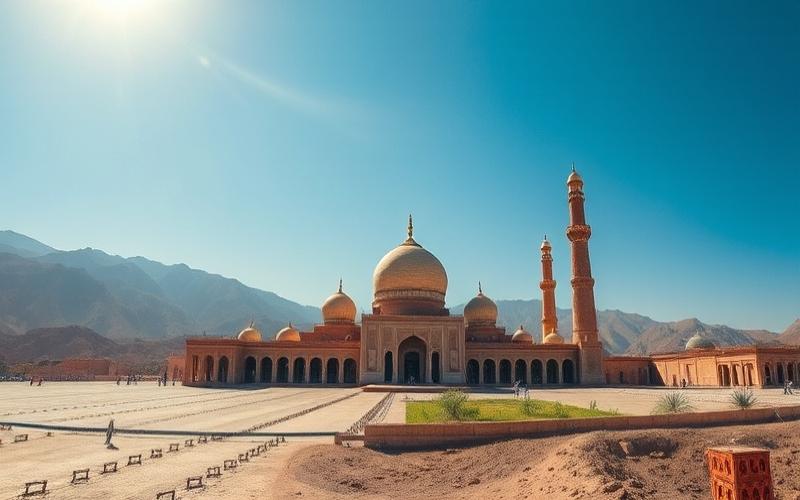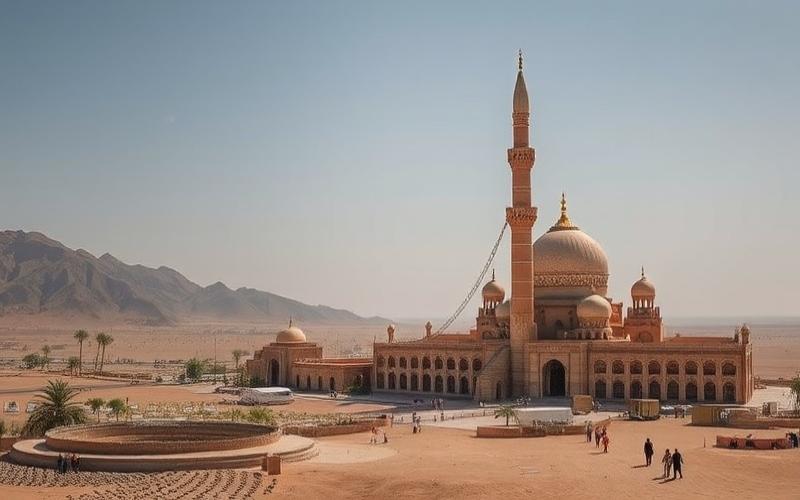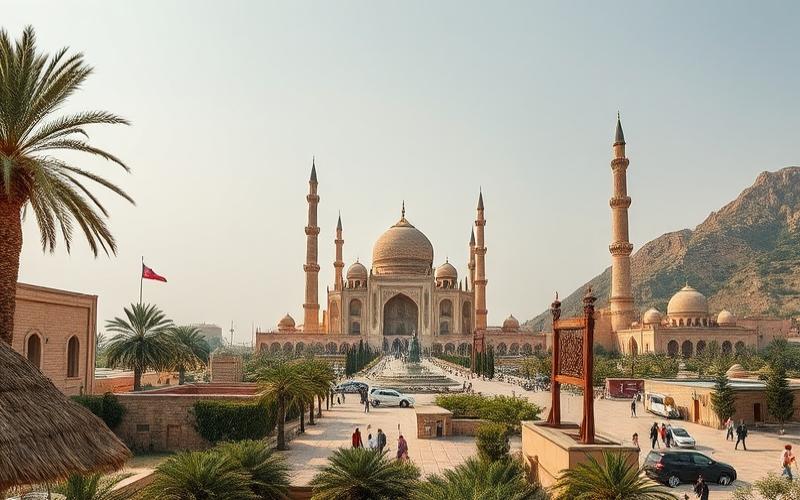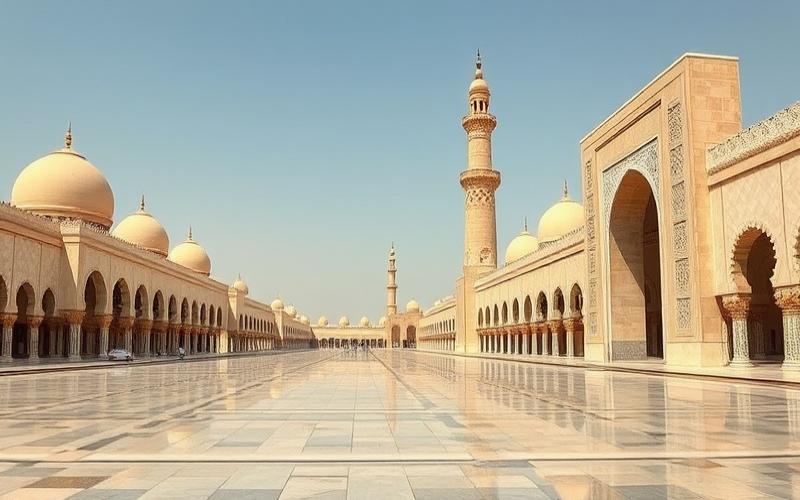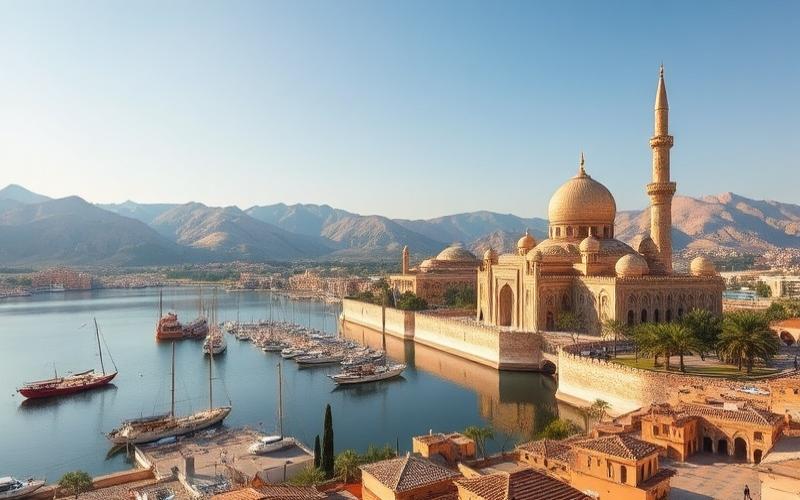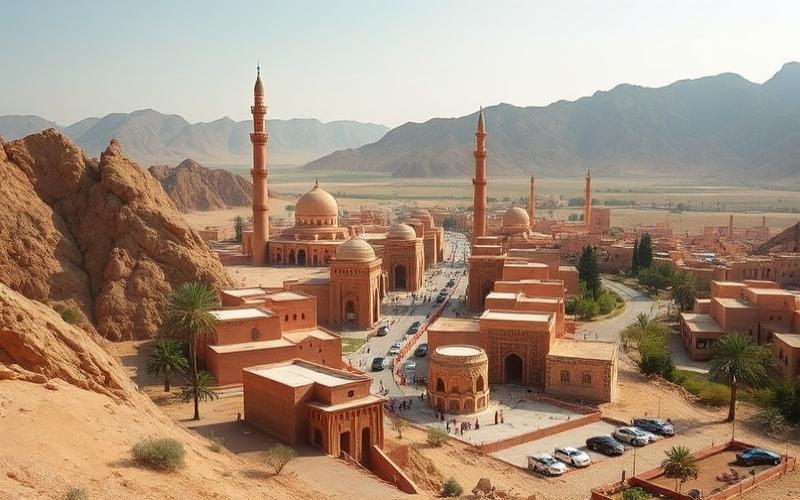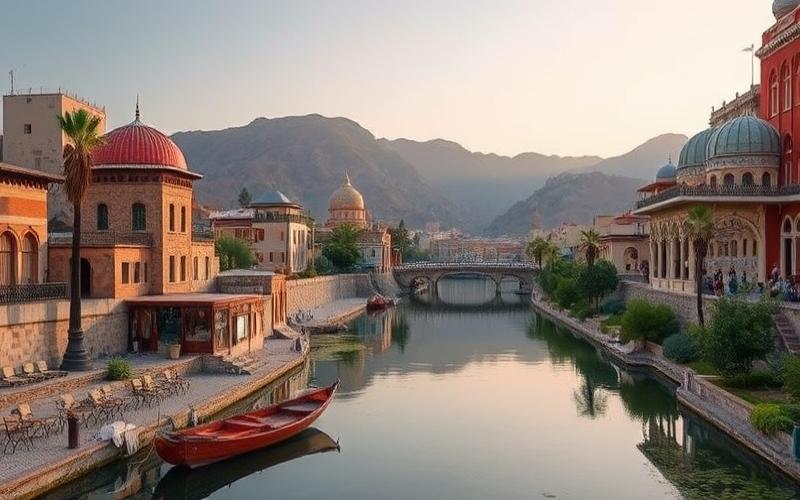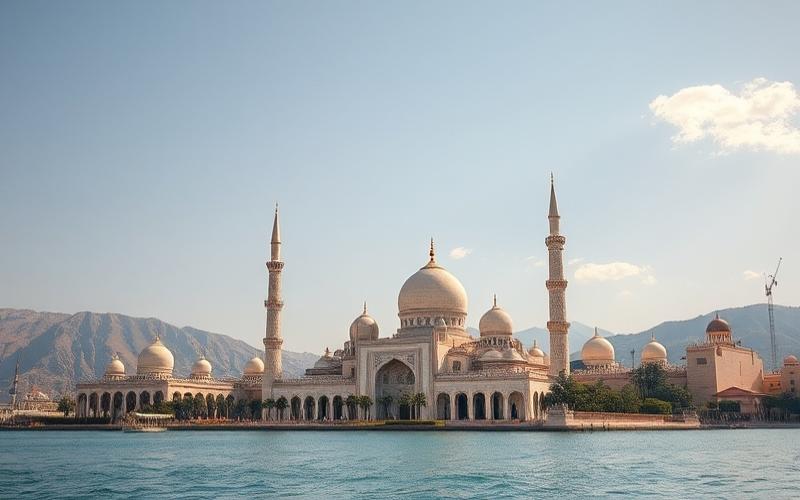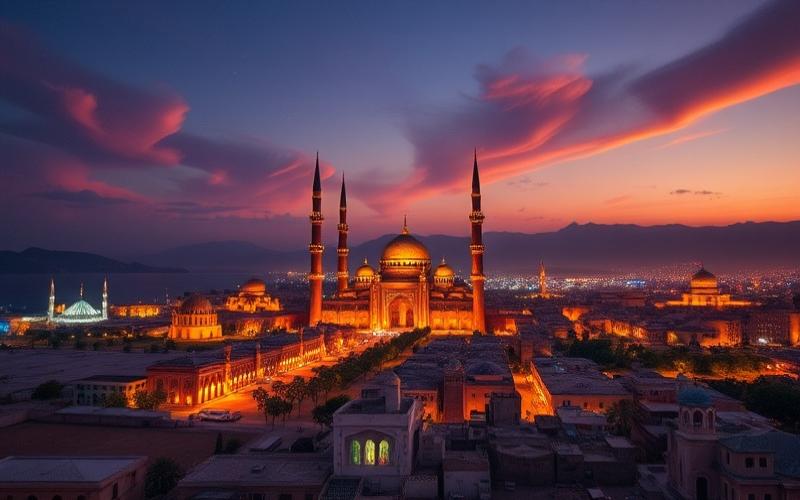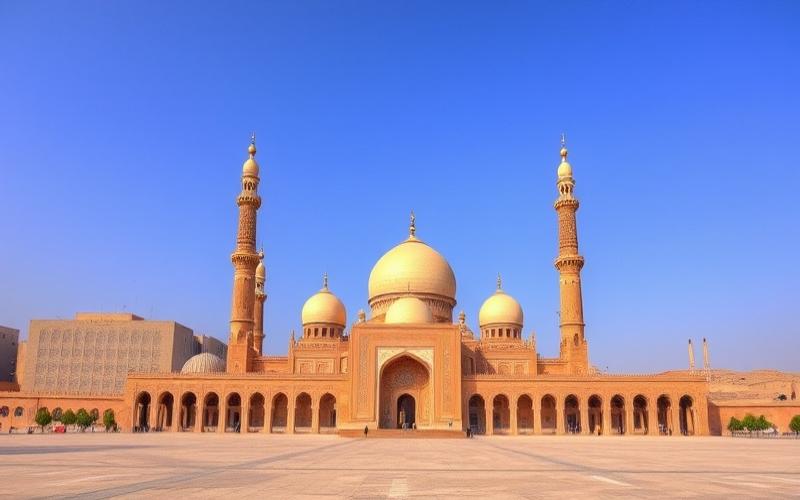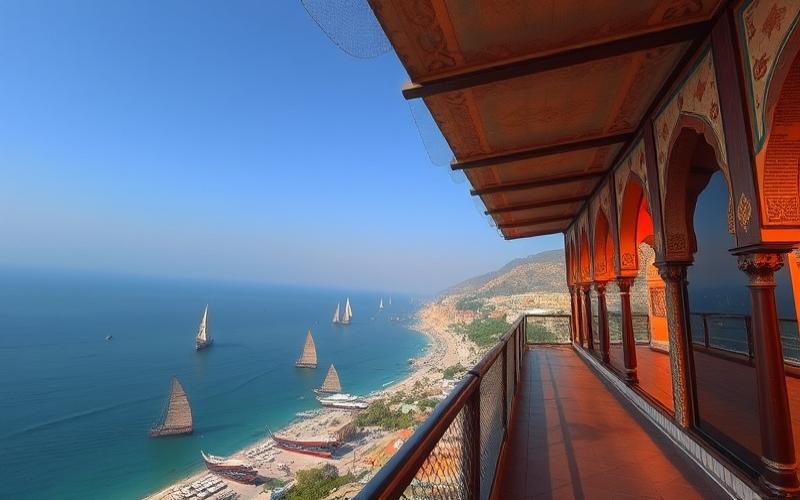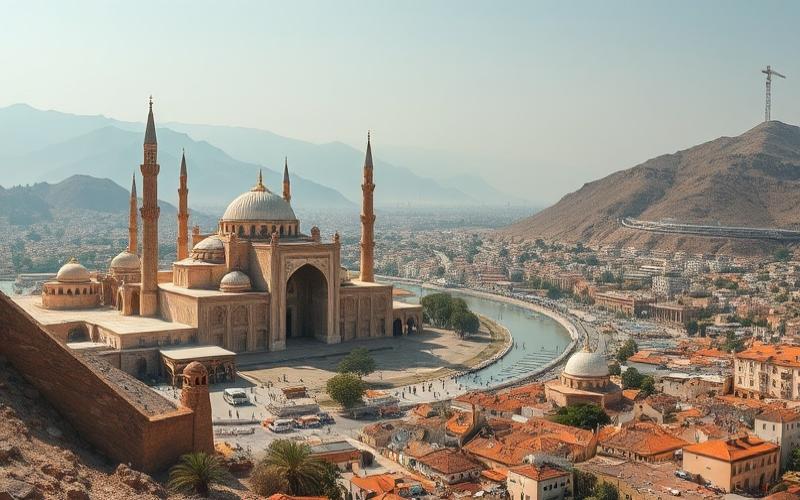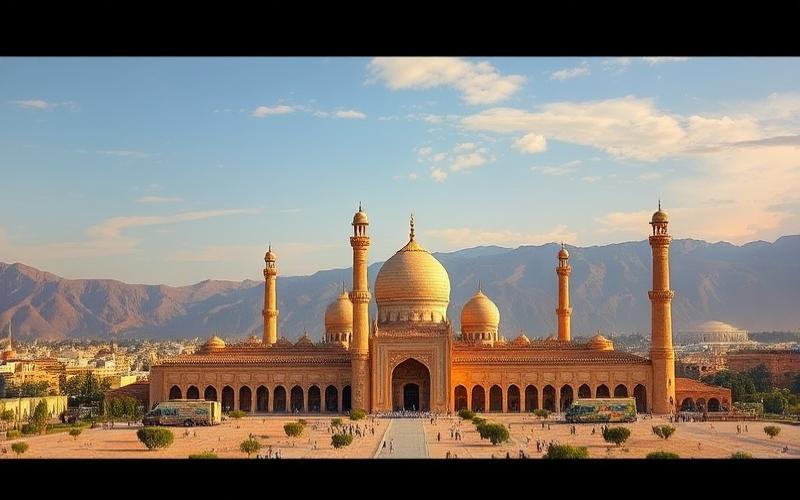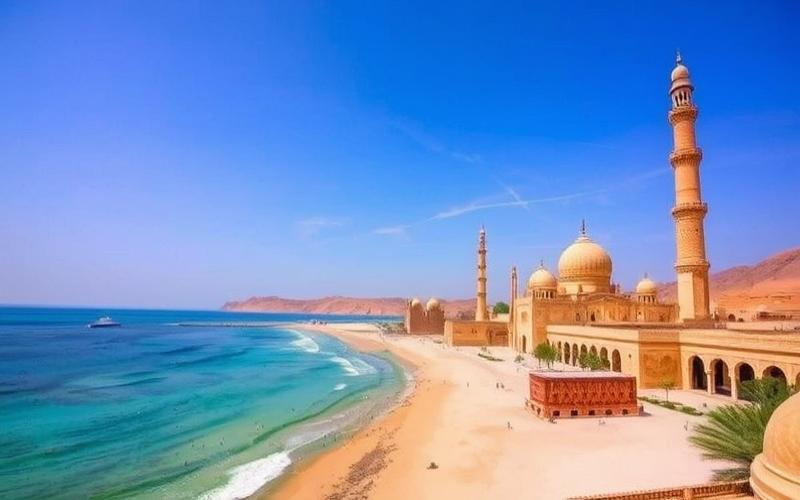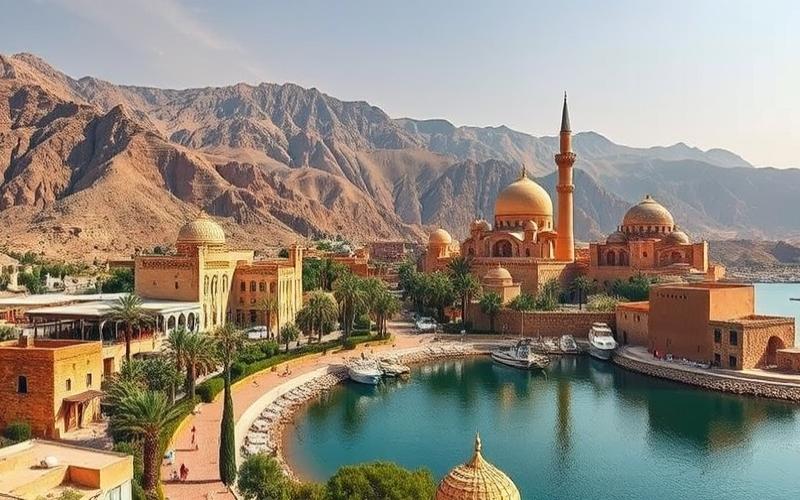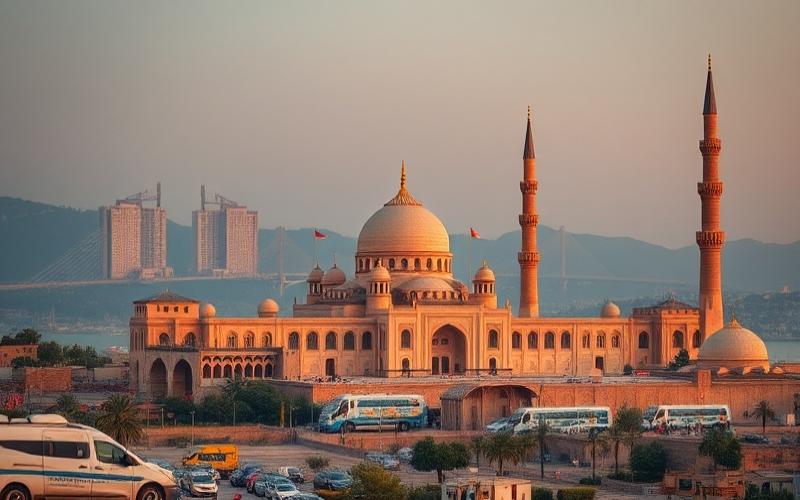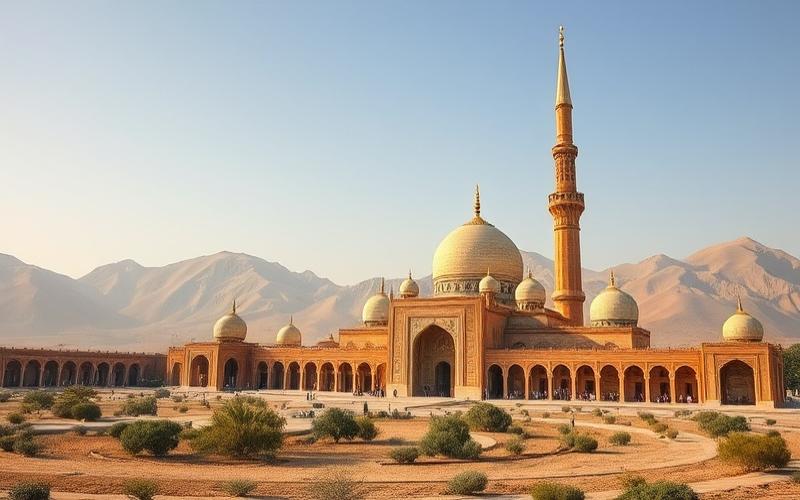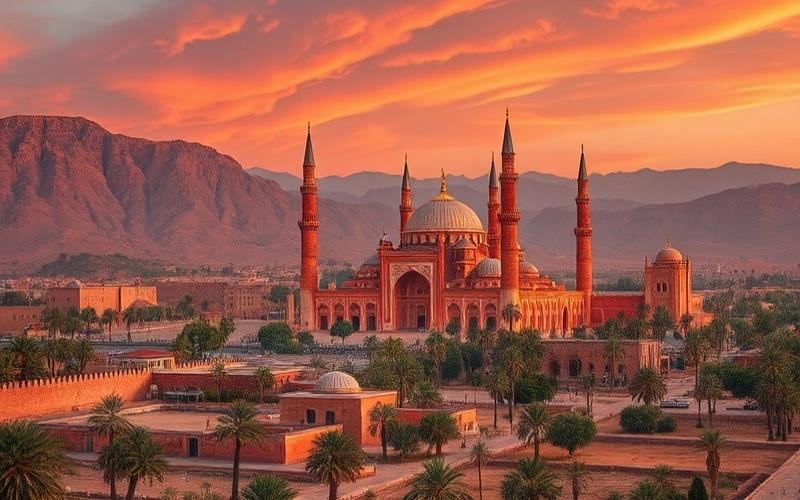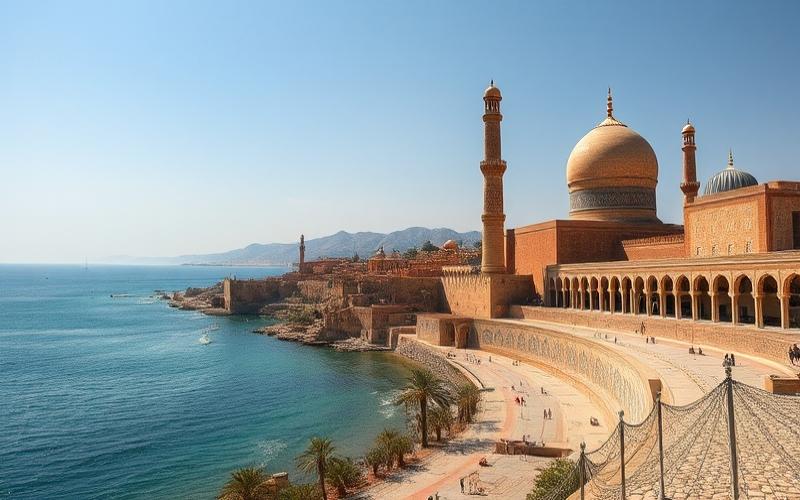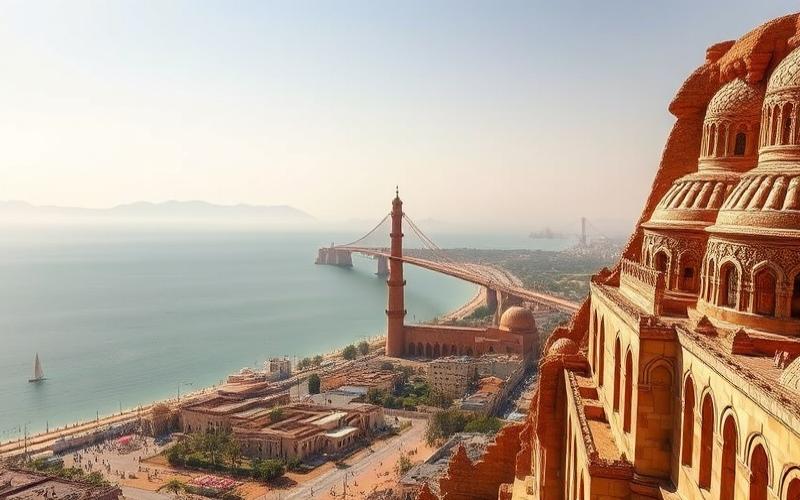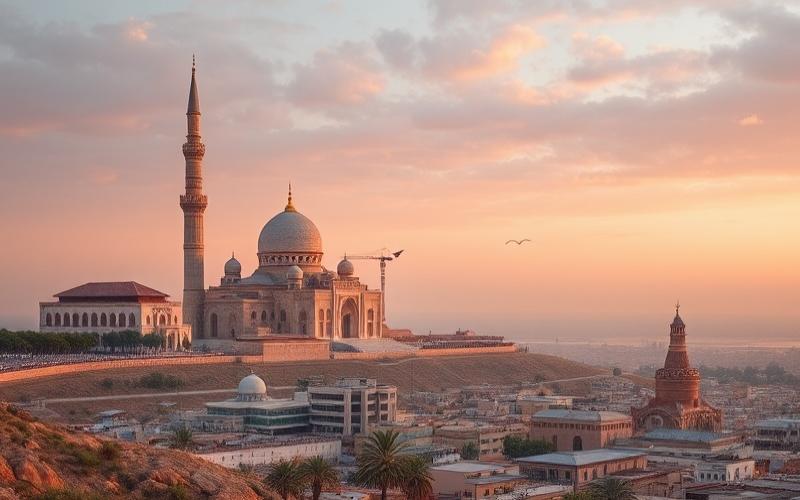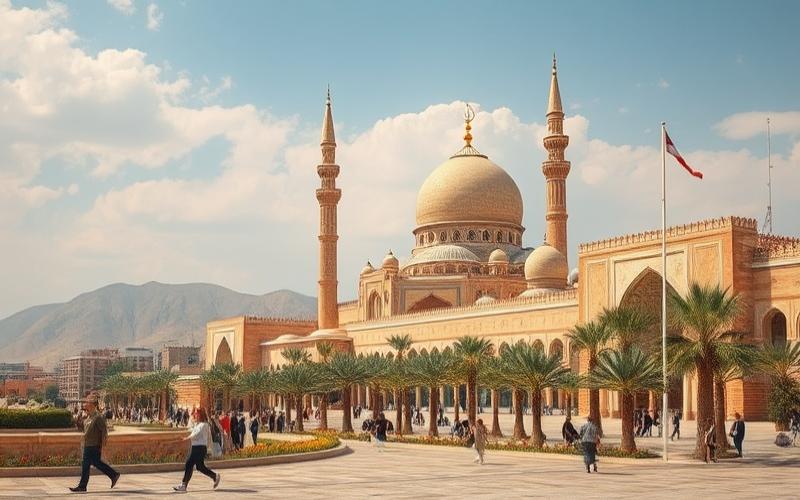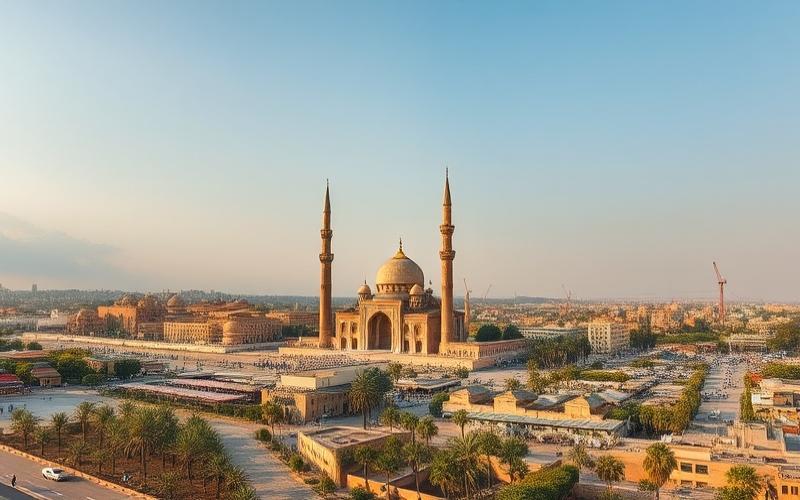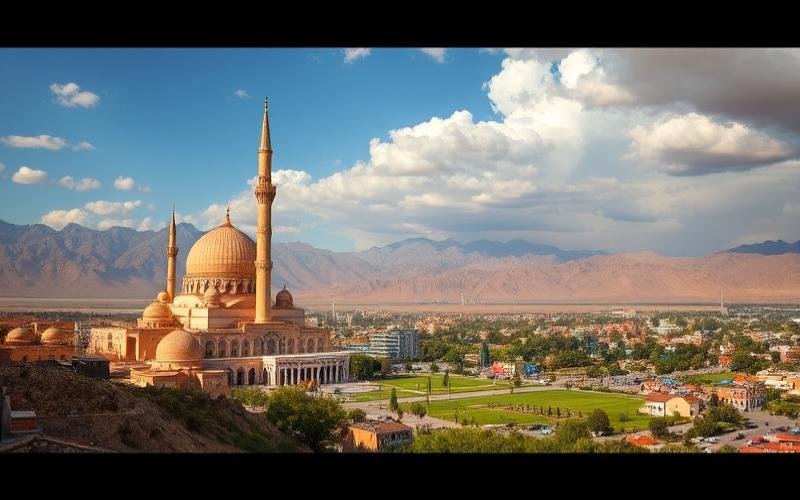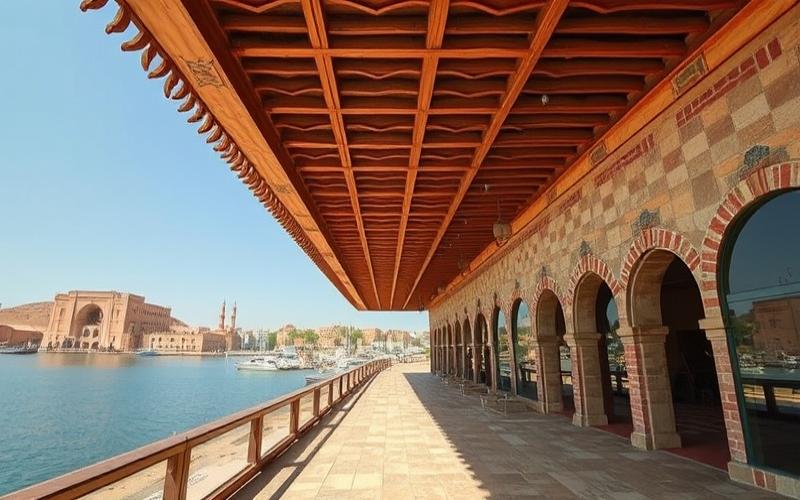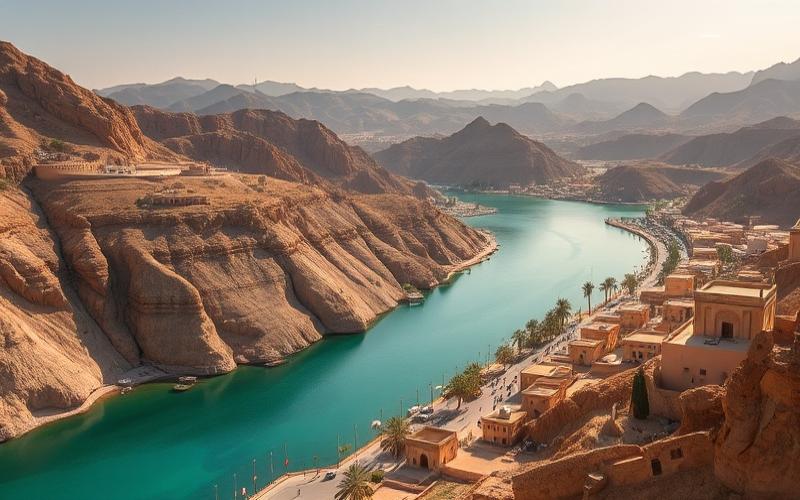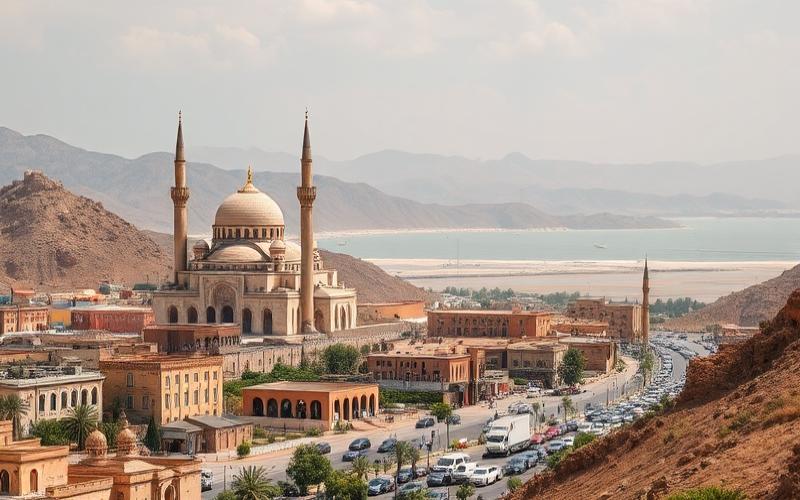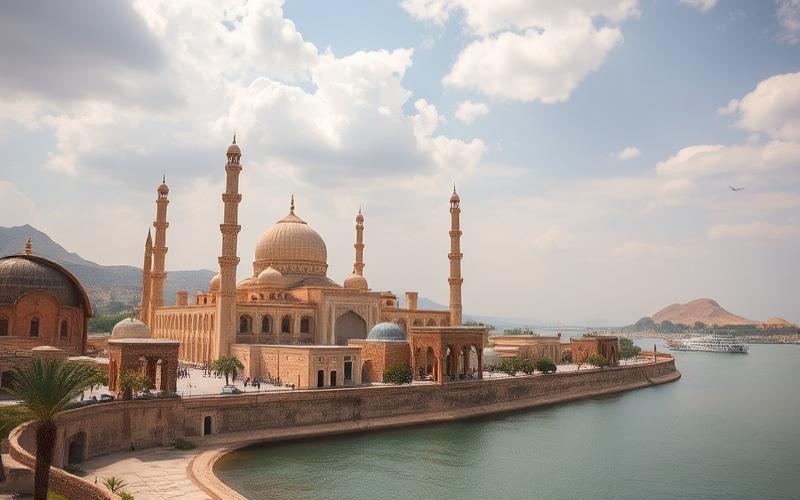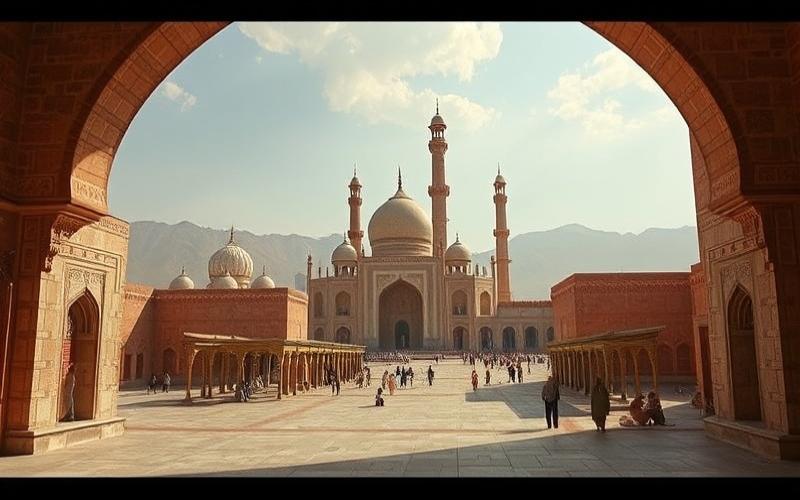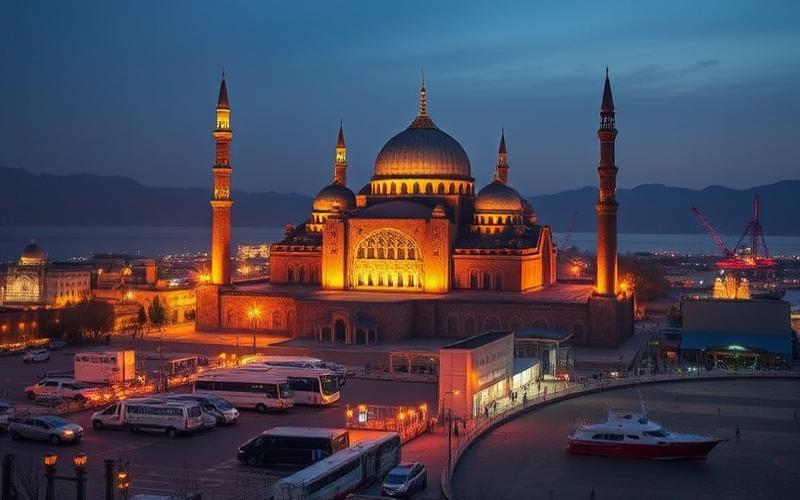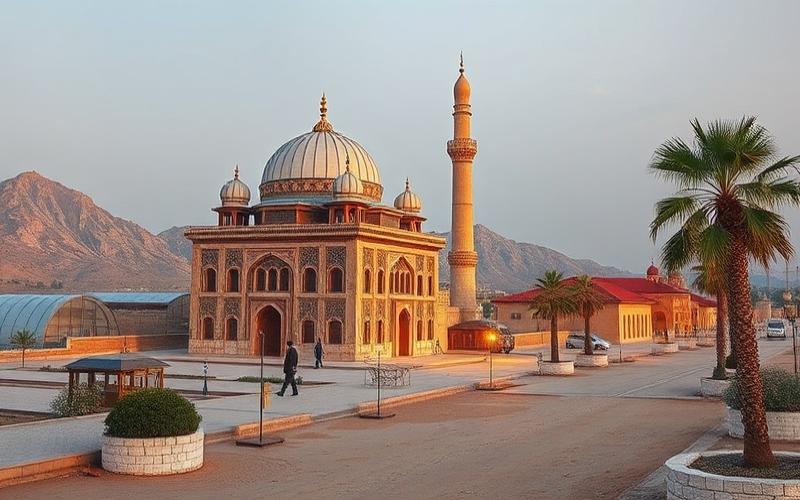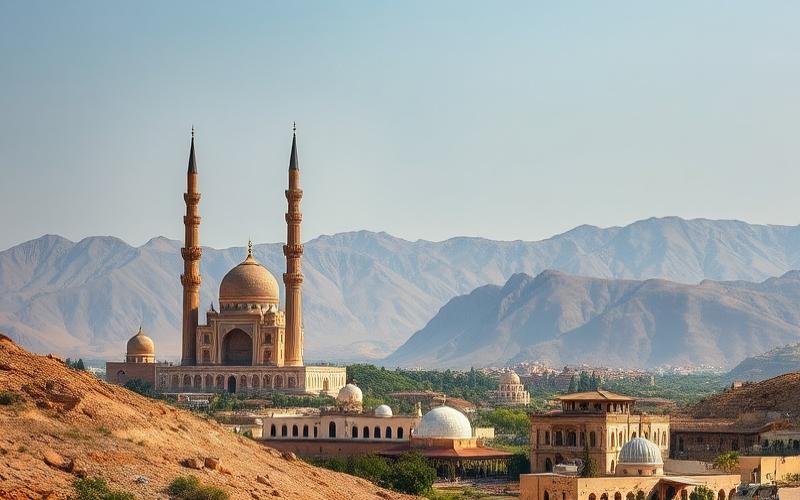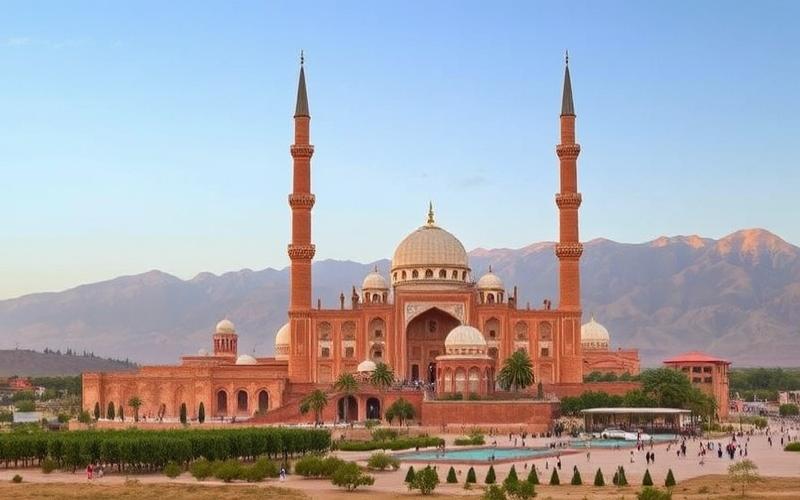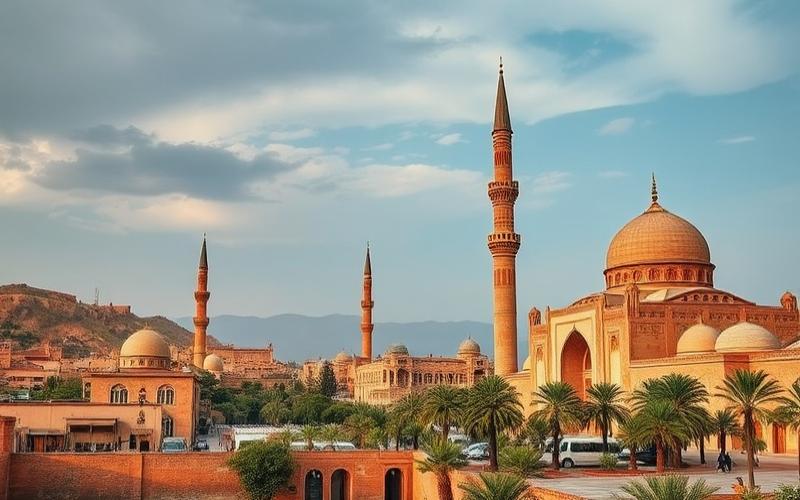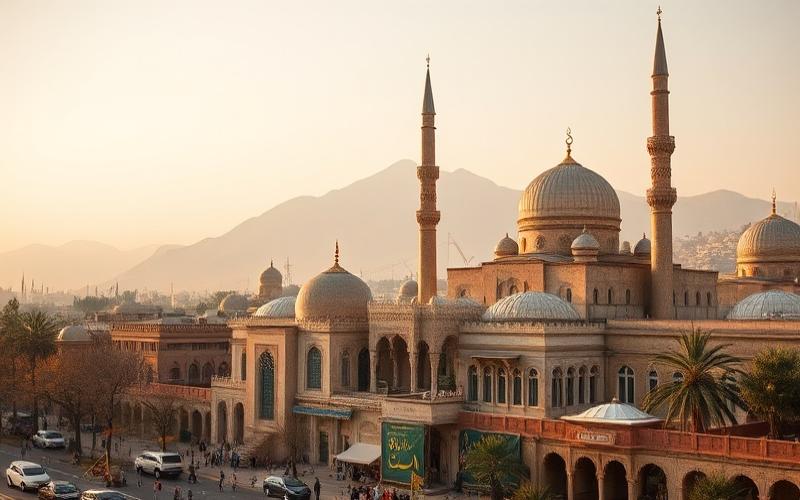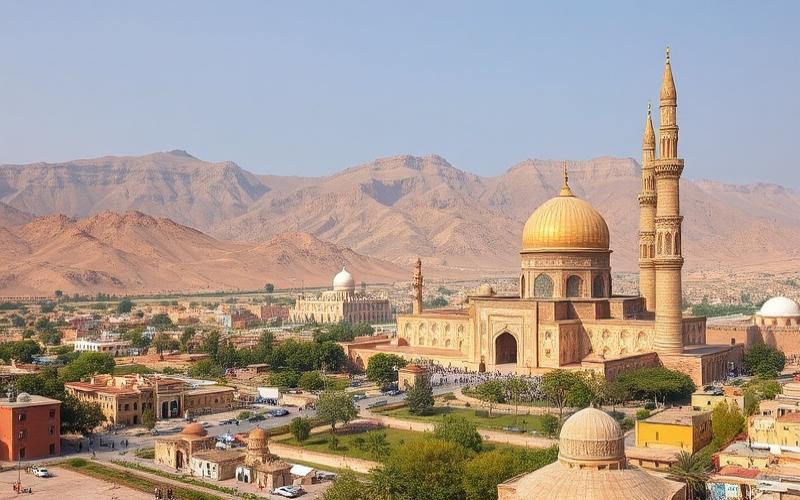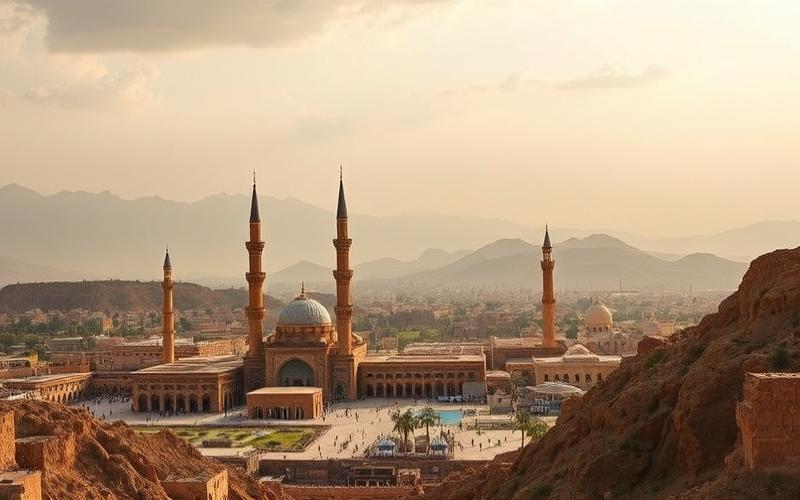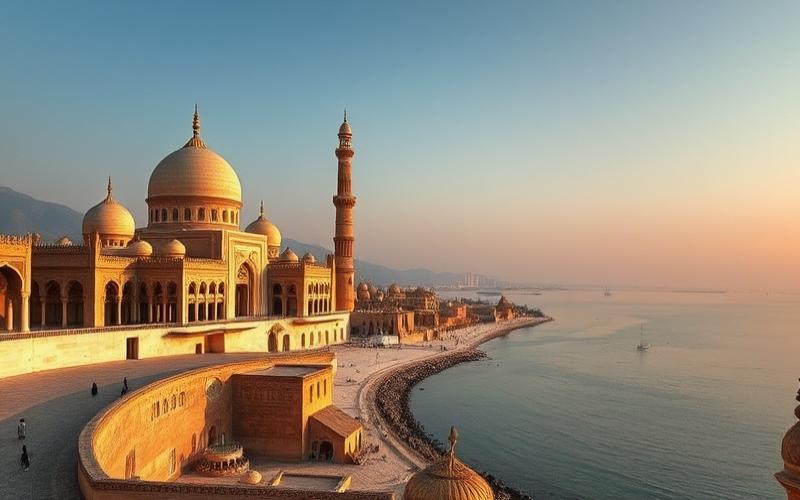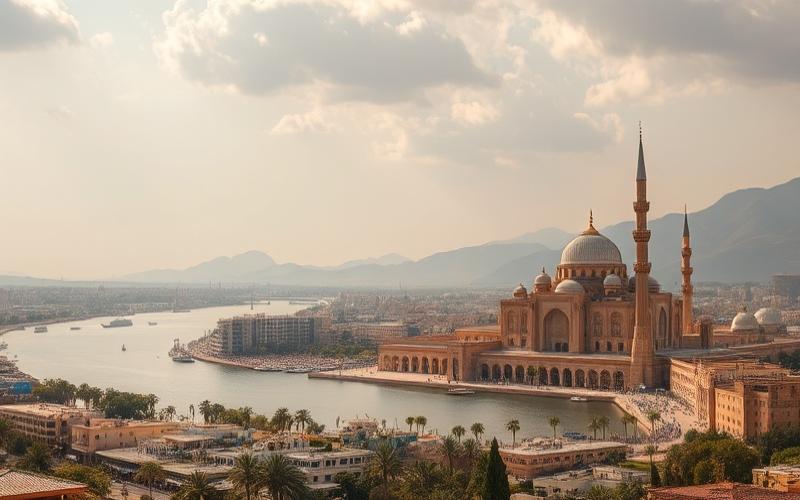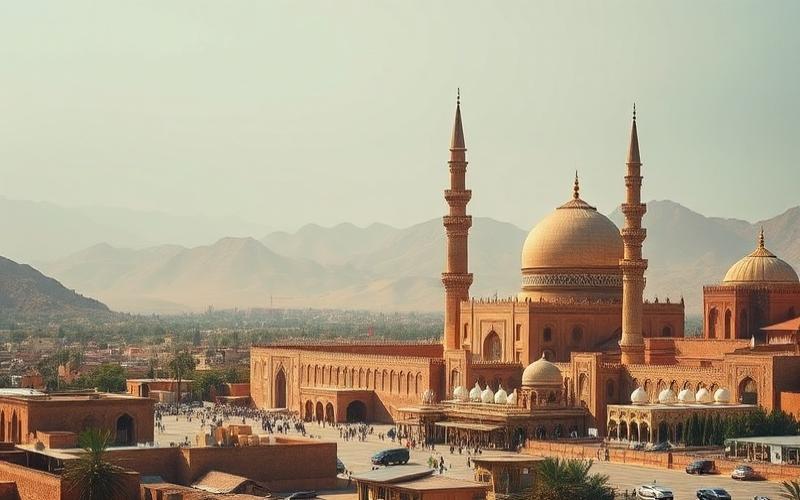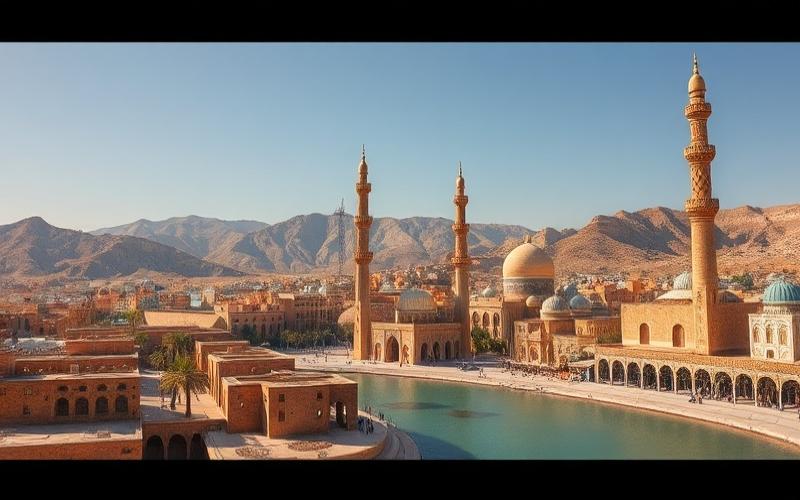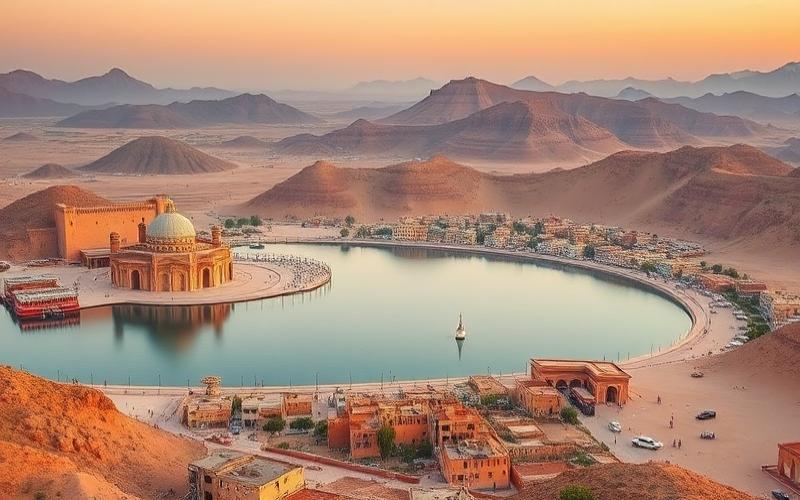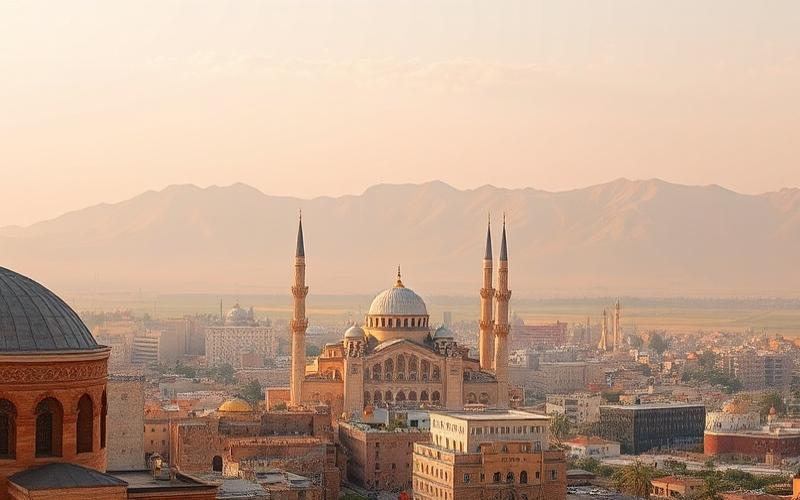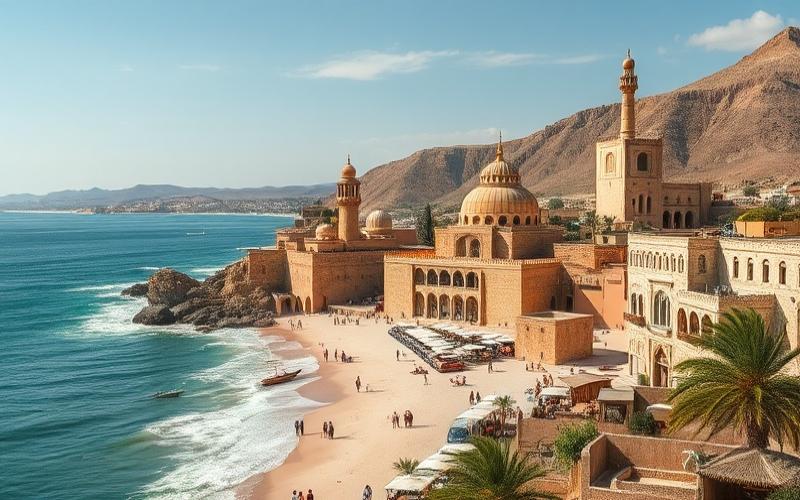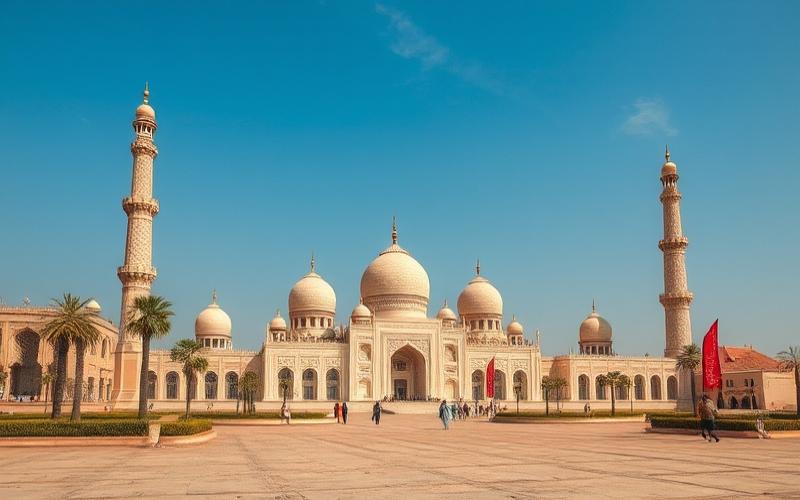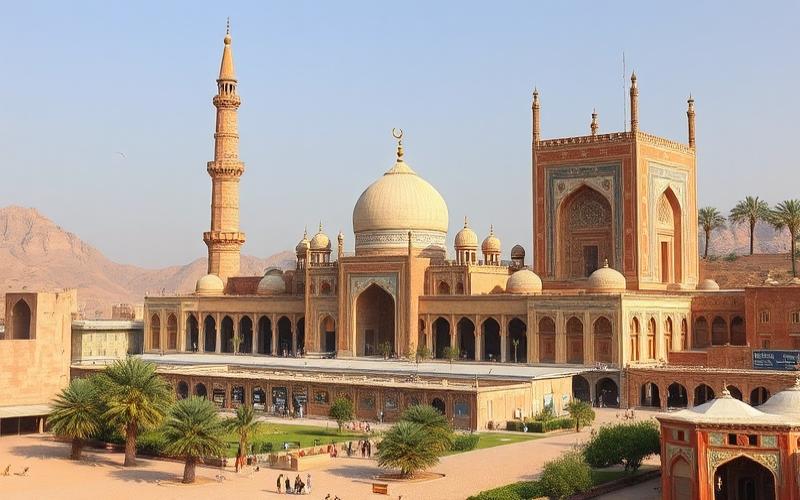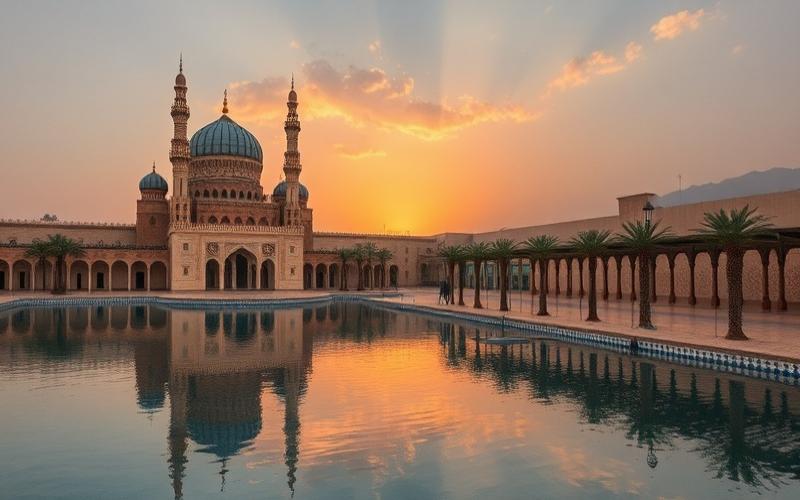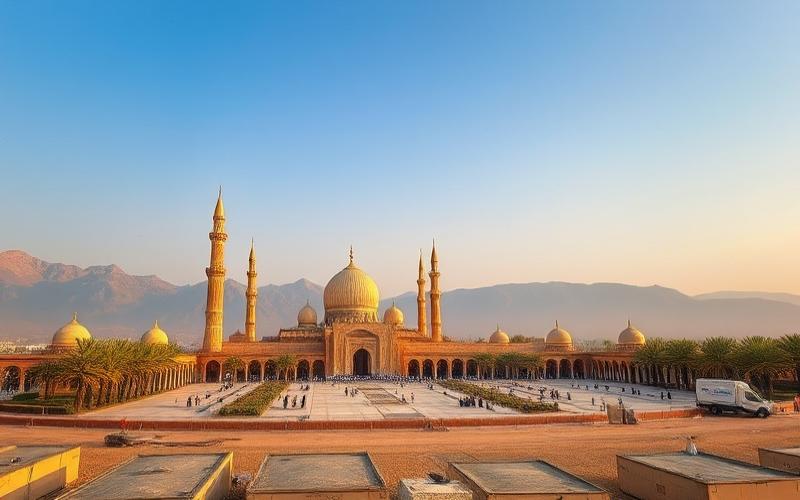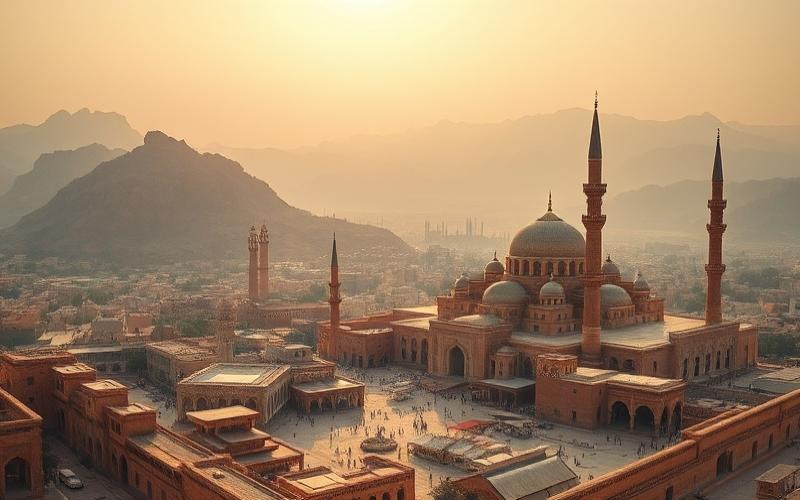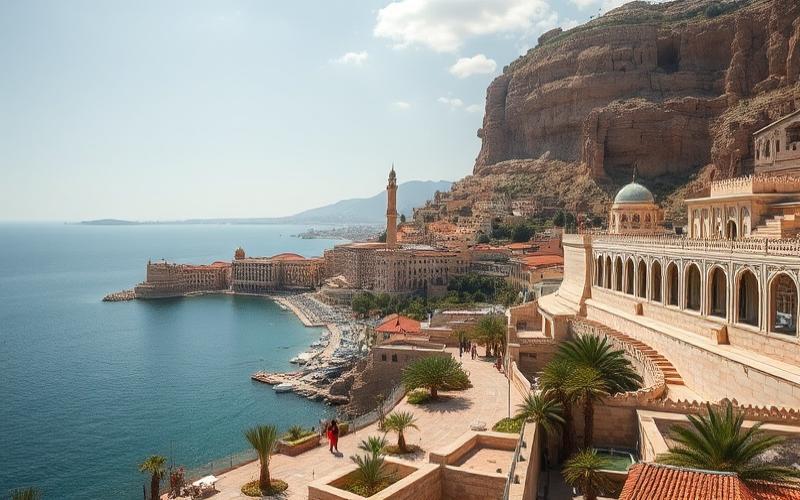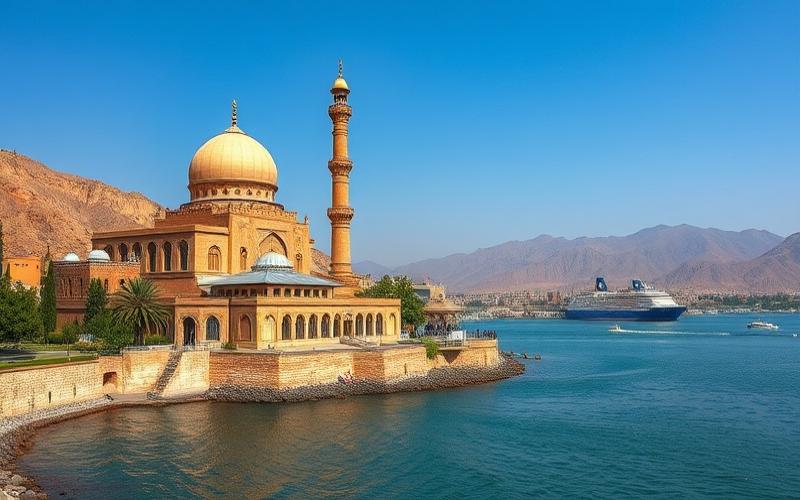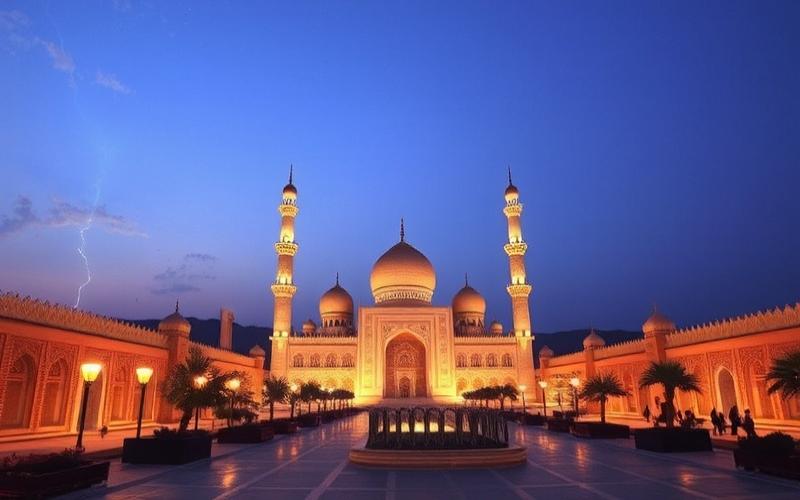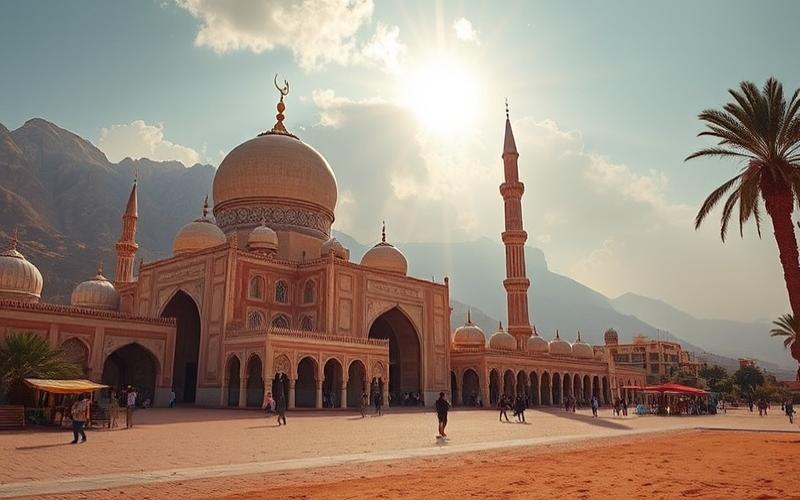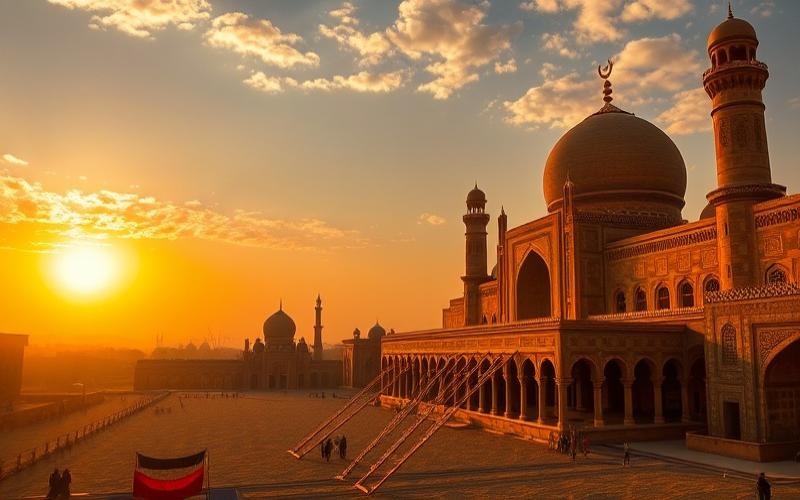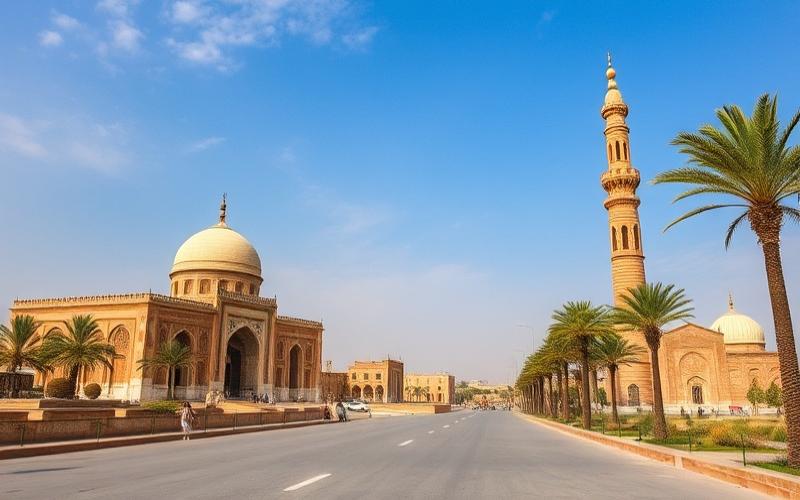
 Published on and written by Cyril Jarnias
Published on and written by Cyril Jarnias
Bahrain, a small island kingdom in the Persian Gulf, stands out as a dynamic and attractive platform for investors seeking to explore new economic opportunities. Despite its modest size, the country has successfully diversified its economy beyond hydrocarbons, with sectors such as finance, manufacturing, and tourism experiencing rapid growth.
In particular, the financial sector, distinguished by its stability and growth potential, attracts significant foreign capital. Additionally, government initiatives to encourage innovation and digital development play a key role in boosting economic activity.
With favorable tax incentives and modern infrastructure, Bahrain provides a conducive environment for business growth, reinforcing its position as one of the region’s most promising economic hubs.
Analysis of Economic Opportunities in Bahrain
Main Economic Sectors and Investment Opportunities in Bahrain
Bahrain stands out for its ambitious economic diversification strategy, fostering the emergence of promising sectors while strengthening its traditional industries.
| Sector | Share of GDP / Key Indicators | Investment Opportunities | Recent Examples |
|---|---|---|---|
| Oil and Gas | Bapco Modernization: +42% refining capacity | Downstream oil, power generation, exports to the Gulf | BMP (Bapco Modernization Project) |
| Financial Services | 17% of GDP; $214 Bn banking assets (2024) | Fintech, Islamic finance, asset management, international banking services | Doubling of fintechs in 3 years (+100 companies) |
| Technology & ICT | Priority sector under Vision 2030 plan | Cloud computing, AI, cybersecurity, IoT | Establishment of international tech giants |
| Tourism & Hospitality | Rapid growth; hotel expansion | Luxury hotels, innovative leisure activities | Hotel development on artificial islands |
| Manufacturing Industry | Access to GCC markets; competitive costs | Light/high-tech manufacturing | Factories in Bahrain International Investment Park |
| Logistics and Transportation | Natural regional hub | Automated warehouses, regional distribution | |
| Renewable Energy | Energy transition launched | Urban/industrial solar; energy efficiency |
Other dynamic sectors:
- Education and vocational training
- Digital services
- Specialized agriculture (growth +4.7% in gross value added)
List of Major Competitive Advantages:
- Strategic location at the heart of the Persian Gulf.
- Economic openness: special economic zones (e.g., Bahrain International Investment Park), ease of business setup.
- Modern port and airport infrastructure suited for international logistics activities.
- Multicultural skilled workforce.
Recent government policies promoting foreign investment:
- Vision 2030 plan focused on diversification beyond hydrocarbons.
- Free zones with targeted tax exemptions by sector.
- Planned monetary easing to support private investment.
- Gradual introduction of corporate tax with a competitive rate starting in 2025.
Notable Examples of Recent Investments:
Saudi sovereign fund PIF announces $5 billion invested in Bahraini infrastructure.
Global fintech players are establishing themselves in Manama thanks to a favorable regulatory environment.
Thus, Bahrain combines regional financial stability with sectoral innovation to attract foreign capital and visionary entrepreneurs.
Good to Know:
Bahrain offers a favorable investment climate thanks to its modern infrastructure and strategic position in the Gulf, with flourishing opportunities in financial services and technology, in addition to traditional sectors like oil and gas. The country provides attractive tax incentives for foreign investors, illustrated by recent successes, such as the expansion of tech companies supported by innovative government initiatives.
Promising Sectors for Investors
Bahrain stands out for its rapid economic diversification and promising sectors offering solid opportunities for foreign investors. Government initiatives and regulatory stability enhance the kingdom’s appeal, while recent statistics demonstrate sustained growth in several strategic areas.
| Sector | Recent Growth | Initiatives/Incentives | Impact on Economy & ROI |
|---|---|---|---|
| Finance | Established regional center | Special economic zones, fintech support, no income or dividend tax for offshore companies | Access to GCC markets, high profitability through Islamic and digital finance |
| Tourism | Accommodation/food services: +6.1% (2024) | Public investments in hotel infrastructure and leisure; simplified e-visa | Local job creation, rising tourist flows post-pandemic |
| Logistics/Transportation | Transport & storage: +11% (2024) | Bahrain Logistics Zone; customs exemptions in free zones; regional e-commerce partnership | Logistics hub for the Gulf; increased opportunity with e-commerce boom |
| Petrochemical/Manufacturing Industry | Manufacturing: +7% (2024) | Bahrain International Investment Park; energy subsidies and tax relief | Key role in non-oil exports |
| Technology Innovation/ICT | Information & communication: +12.4% (2024) | Direct R&D support; public-private funds for tech startups; dedicated ICT freehold zone | Strong growth expected in cloud computing, AI, and cybersecurity |
Figures from the latest available analyses.
List of Main Sectoral Strengths:
- Finance:
- Bahrain is recognized as a leader in Islamic finance.
- Accelerated fintech development due to a favorable regulatory environment.
- Presence of numerous regional banking headquarters.
- Tourism/Hospitality:
- National Vision 2030 strategy aiming to multiply international arrivals.
- Regular hosting of major cultural/sporting events.
- Logistics/Transportation:
- Strategic geographic location between Saudi Arabia and the rest of the Gulf.
- Modern platforms facilitating fast import/export to the entire MENA region.
- Petrochemical/Manufacturing Industry
- Gradual diversification beyond crude oil to aluminum, advanced plastics…
- Innovative Technologies
- Growth fueled by massive investments in digital infrastructure
- Preferred hosting of startups through public incubators
Key Tax/Regulatory Incentives:
- Full or partial corporate tax exemption depending on sector/economic zones
- No taxation on dividends/repatriated foreign capital
- Simplified procedures for obtaining business licenses
- Full foreign ownership rights possible in certain “freehold” zones
Flagship Government Initiatives:
- Bahrain Economic Vision 2030: priority on sustainable development beyond hydrocarbons
- Creation of specialized free zones — Bahrain International Investment Park/Bahrain Logistics Zone
- Increased public-private partnerships in digital/logistical infrastructure
Expected Overall Impact:
The rise of non-oil sectors (+3.4% annually), accounting for over 86% of Bahrain’s GDP since 2024–2025, provides a solid foundation for international investors seeking legal security, stable returns, and facilitated access to the GCC market. Returns on investment remain competitive thanks to advantageous taxation, robust demand driven by expatriates/regional professionals, and a proactive policy focused on innovation-technology-logistics.
Complementary Strengths:
- Monetary stability ensured by peg to the U.S. dollar;
- Active anti-inflation policy (2–3%);
- Dynamic commercial real estate market driven by tertiary/logistical demand;
To maximize their potential return, foreign players are encouraged to primarily target financial-technological hubs as well as the logistical-industrial segment directly benefiting from the regional post-pandemic rebound.
Good to Know:
Bahrain offers numerous tax incentives to foreign investors, particularly in finance and the petrochemical industry, supported by private-public initiatives and rapid growth in the technology sector.
EU Investment in Bahrain’s Economy
History of EU Investments in Bahrain
European investments in Bahrain have been structured over decades around the desire to support the kingdom’s economic diversification, historically dependent on the oil sector. The European Union has progressively strengthened its economic and political ties with Bahrain, notably through the recent signing of a cooperation agreement that establishes an institutional framework for political dialogue and exchanges in the areas of trade, innovation, and renewable energy.
Main Beneficiary Economic Sectors
- Energy: Bahrain is a major regional oil refining center.
- Aluminum: The country has risen among global leaders thanks to massive investments in the industry (example: Alba company).
- Financial Services: Premier banking hub in the Gulf since 1975, with a strong international presence.
- Innovation and Research: New axes developed under EU-Bahrain agreements to support the transition to a knowledge-based economy.
| Sector | Description / Major Impact |
|---|---|
| Energy & Refining | Regional center; significant exports |
| Aluminum | Industrial production supported by foreign investment |
| Finance & Insurance | Major financial center; international banks |
| Innovation/Research | New EU-Bahrain cooperations |
Recent Agreements and Major Partnerships
- EU–Bahrain agreement signed in 2024 to strengthen:
- Political dialogue
- Trade cooperation
- Research, innovation
- Clean and renewable energy
This agreement also provides for an annual bilateral meeting to jointly identify new strategic axes in support of Bahrain’s economic diversification efforts.
European Strategic Motivations
The main reasons driving the EU to invest in Bahrain are:
- Strategic location at the heart of the Persian Gulf, facilitating regional trade to the entire MENA (Middle East-North Africa) zone.
- Attractive regulatory framework, modernized to welcome foreign capital while ensuring legal security and transparency.
- Growing openness to technological and energy innovations allowing European companies to experiment or export their expertise.
Recent Statistics on European/Foreign Investment in Bahrain
- Annual foreign direct investment flows reached a historic record in 2023: over 2,716 million BHD injected.
- On average over twenty-five years (1998–2024), these flows amount to approximately 504 million BHD per year.
Although not specifically disaggregated by European origin in this overall FDI source, several European companies regularly feature among the main industrial or financial investors.
Future Projects or Announced Intentions
Among the priority projects identified during recent bilateral discussions:
- Joint strengthening of green industrial capacities (green hydrogen, solar)
- Joint development of technology incubators
The focus is on increased cooperation in educational/scientific matters to support Bahrain’s sustainable development while creating as many new commercial opportunities on the European side.
These collaborations aim for mutual benefit:
For Bahrain: accelerate its transition away from oil through European technology transfer, attract more innovative foreign companies, create local skilled jobs.
For the EU: secure its alternative energy supplies in the MENA region while opening its industrial markets/financial services to a dynamic hub already benefiting from a recognized pro-business environment.
Good to Know:
The European Union has heavily invested in Bahrain’s finance and renewable energy sectors, leveraging the country’s strategic location as a regional hub, which has strengthened bilateral economic exchanges and created new job opportunities. Recent partnerships target technological development and green infrastructure, with projects like the Durrat solar park contributing to doubling investments by 2030.
Disclaimer: The information provided on this website is for informational purposes only and does not constitute financial, legal, or professional advice. We encourage you to consult qualified experts before making any investment, real estate, or expatriation decisions. Although we strive to maintain up-to-date and accurate information, we do not guarantee the completeness, accuracy, or timeliness of the proposed content. As investment and expatriation involve risks, we disclaim any liability for potential losses or damages arising from the use of this site. Your use of this site confirms your acceptance of these terms and your understanding of the associated risks.

